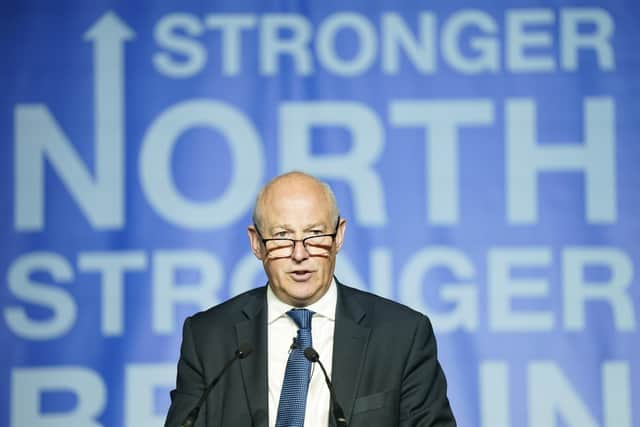Council Tax has morphed into a new version of the Poll Tax and is a drag on rebalancing our regional economies - John Stevenson
The Poll Tax was a deeply unpopular policy because, at its most basic level, it felt unfair. The problem was that it simply did not reflect an individual’s ability to pay. The poorest families and the richest families were expected to contribute an equal amount, meaning that, as a proportion of one’s income, the poorest were much worse off.
However, we are now in a position where its replacement, Council Tax, has morphed into a new version of the Poll Tax. And because of hugely imbalanced property prices across the country, it acts as a drag on rebalancing our regional economies and levelling up the areas of the country that need it the most.
Advertisement
Hide AdAdvertisement
Hide AdWhilst Council Tax is somewhat more progressive – property value is banded and it is levied on capital value as opposed to notional rental value – it still fails to properly compensate for differences in actual income and wealth. Worse still, because of regional imbalances in property values that have only grown larger, the current system of Council Tax ingrains the disparity between the North and the South. The overarching reality is that, because property values have not been updated for over 30 years, Council Tax suffers from almost the same regressivity as the Poll Tax.


This is due to many features relating to the design of Council Tax. For example, the difference between bands is extremely small, making it resemble a per capita tax. Accordingly, the difference in payments between rich and poor is extraordinarily small. The fact that it is levied equally within bands means that the lowest-valued properties in each band pay a significantly higher amount as a percentage of their property value than the highest-valued property in that same band.
This is all before we look at the disproportionate effect that the tax has on the different regions of the UK, where property prices vary to such a wild degree. As property value in the South East has sky-rocketed, the relative cost of Council Tax to property value has plummeted in comparison to the rest of the country. Right now, someone in a £150,000 home in Bolton pays £1,000 more a year in Council Tax than someone living in an £8m mansion in Westminster.
So, by unintended effect, Council Tax has almost become the Poll Tax in all but name. It is time for the Conservative Party to finally put this right, by listening to their MPs, think tank Bright Blue and voters and introducing a proportional property tax. One idea, spearheaded by Fairer Share, would be to create a flat 0.48 per cent tax on residential property value. This would provide more than £550 of annual tax savings for 77 per cent of households.
Advertisement
Hide AdAdvertisement
Hide AdA huge number of these households would be in the North and Midlands – meaning a substantial annual cash boost to those hard working families who pay Council Tax on top of all the other obligations they currently have. Levelling up, or any incarnation of that concept, can only happen when the people of those areas which need to be boosted become richer themselves and have more money to spend.
Furthermore, the incentive to live in an area where property prices are not only lower but where the tax attached to them is also lower would mean a huge rebalancing in the workforce – at once easing the burden in the South and opening up opportunities in the rest of the country, especially for those areas that have traditionally found it more difficult to attract skilled labour and talent.
Not only is this the right thing to do for the country, but there is also a politically necessary element to the reform. Recent polling has indicated that adopting this policy would be popular amongst a large number of voters, with a plurality, 41 per cent, supporting a proportional property tax and only 8 per cent opposing it.
This is not surprising, as 90 per cent of households in key constituencies would see a tax cut from this policy.
Advertisement
Hide AdAdvertisement
Hide AdThis reform is fully costed, will help to fund new infrastructure and, perhaps most importantly, will provide the Treasury with additional fiscal breathing room - a surplus of £5.6bn.
Some 32 years later, the Poll Tax riots still haunt the Conservative Party – which is why I think governments of all colours are loath to meddle with Council Tax. But there has to be a reckoning.
The Conservative Party should never be seen as the party of high taxes. Instead, we should aim to be seen as the party of fair taxes. Being an unfair tax is what did it for the Poll Tax - and Council Tax is now basically replicating this unfairness across the country. It is time to be bold and finally right the wrong that Council Tax has become.
John Stevenson is the Conservative MP for Carlisle.
Comment Guidelines
National World encourages reader discussion on our stories. User feedback, insights and back-and-forth exchanges add a rich layer of context to reporting. Please review our Community Guidelines before commenting.